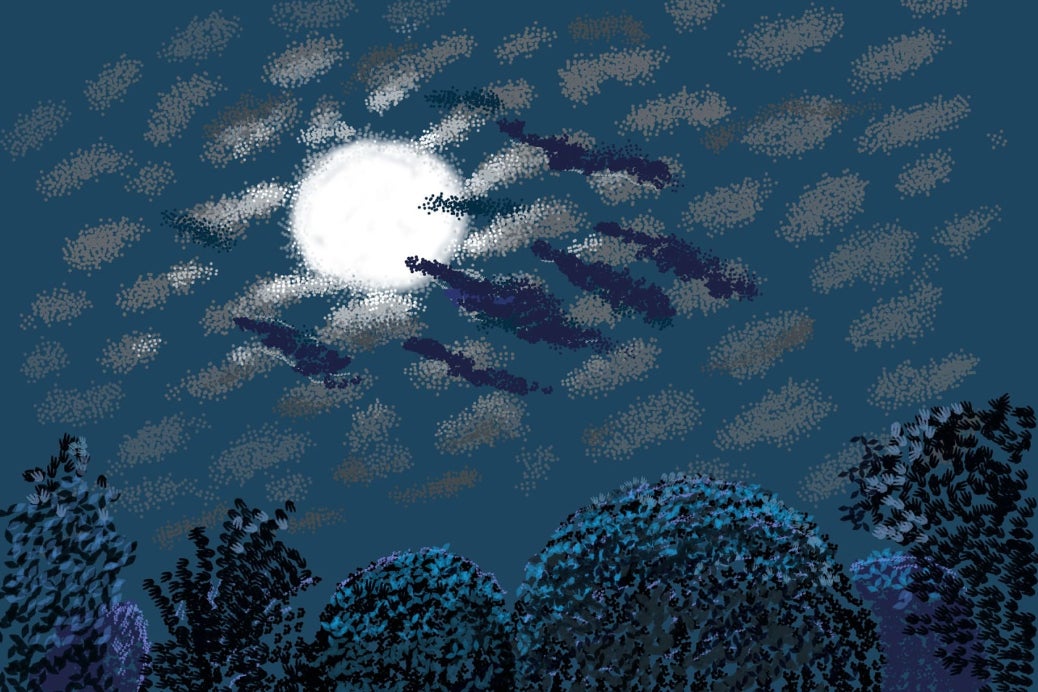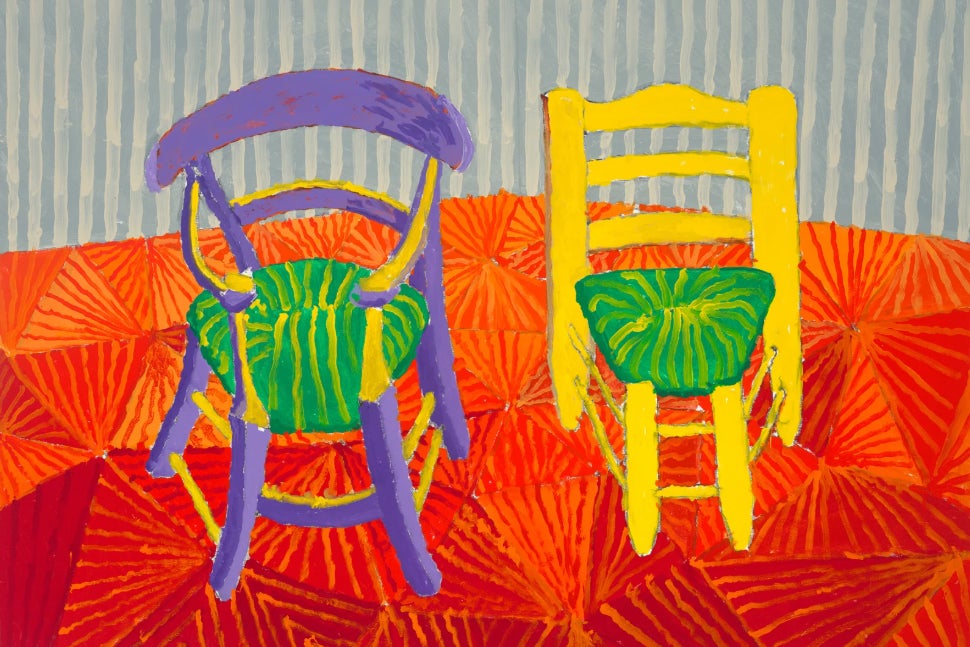“You have to be inventive, always,” says David Hockney at the opening night of his new show, “Some Very, Very, Very New Paintings Not Yet Shown in Paris”, which is full of bright, dynamic works that belie the energy of an 88-year-old man in a wheelchair. The grand old master is explaining how he painted the tops of the large canvases while sitting down. “I turn them on their side. There is always a way. It is what imagination is about,” he says, with a twinkle in his eye.
In a brand new tweed suit specially made for the occasion, he is escorted by his great-nephew, Richard, also newly tweed-suited, who is both a family member and his assistant. “David said he was sick of seeing me in jeans and trainers, so he sent me to the tailor,” he says. Of course, the peroxide-haired and silver-tongued Hockney has always been a bit of a dandy.
The centrepiece of the show at Annely Juda’s new Mayfair gallery is a double portrait of the artist and his great-nephew/assistant together. It is dazzling, and pops with colour and zest. There is no sense of this being an old man’s work. The lines, perhaps, are sometimes a little more hazy, but the paint feels so fresh that it’s as though it hasn’t dried. The brush strokes are a little shaky, but the vision is clear and firm. The images ping against a dark blue wall, the colour chosen by the artist. This show also marks the most developed stage yet in his “reverse perspective”.

Hockney pioneered this technique, in which objects that appear further away are actually larger, and parallel lines diverge towards the viewer rather than converging. There are echoes of the colourful exuberance of Pierre Bonnard and the decisive and forthright perspective of Van Gogh – one picture is even titled Vincent’s Chair and Gauguin’s Chair. Depicting a scarlet-matted floor with purple and yellow wooden chair legs, it radiates psychedelic energy and that unmistakeable Hockney optimism.
Before the show started, Hockney held court on the pavement with the inevitable cigarette in hand. He was never going to be stopped from smoking. He explained perspective and smoking restrictions and then veered onto Caravaggio. He is very much the professor as well as the dandy gadfly, still on his long journey of development as an artist with no hint of fading into the light.
The new portraits are startling and warm and direct as he revisits the faces of friends young and old. In each, there is a strong sense of exploring and gathering joy from what he sees. He still wears a badge saying “end bossiness soon”, but what is not ending is his sense of quest. His pictures are dynamic, and make you feel as though you are somehow sharing his magic ability to look and entertain and reflect. The show also includes The Moon Room – a selection of iPad works from 2020, created in his studio in Normandy, which have a Walter de la Mare sense of stillness and delight in colour. They capture light and luminosity.

This show will travel on to Paris. The prices for Hockney’s paintings are into seven figures, and very few are for sale. So this is a fleeting opportunity to see the greatness of an ageing master who is undiminished in zest and zeal.
In London, Hockney, as ever, has the last word. “What else would I want to do? I still find the world beautiful, and I still find new ways to appreciate that and capture it. I just have to keep going!”
And with that, he is off, whizzing round the studio in his electric wheelchair, eyes ablaze and mind whirring.
Some Very, Very, Very New Paintings Not Yet Shown in Paris is at Annely Juda Fine Art in London until 28 February 2026







